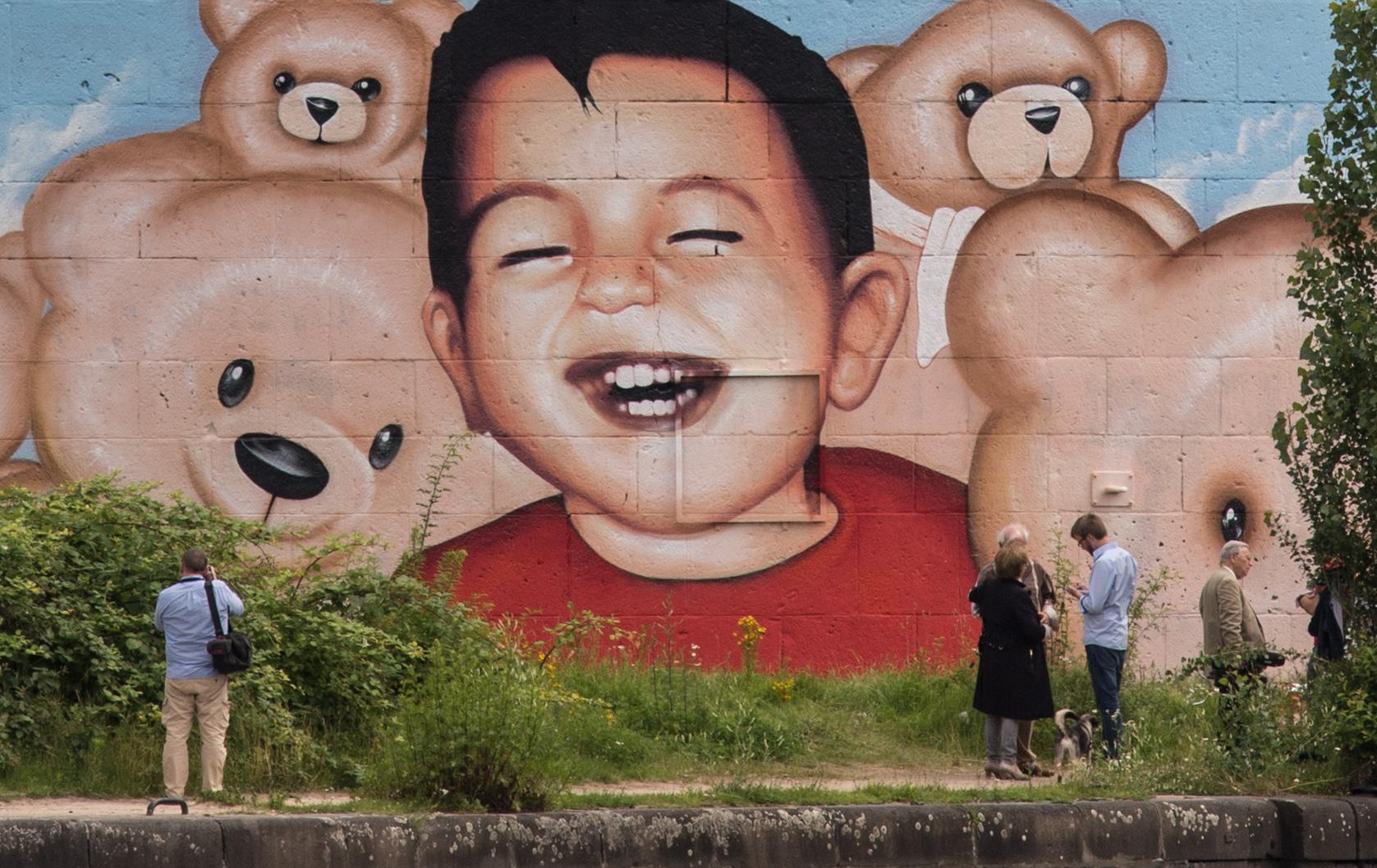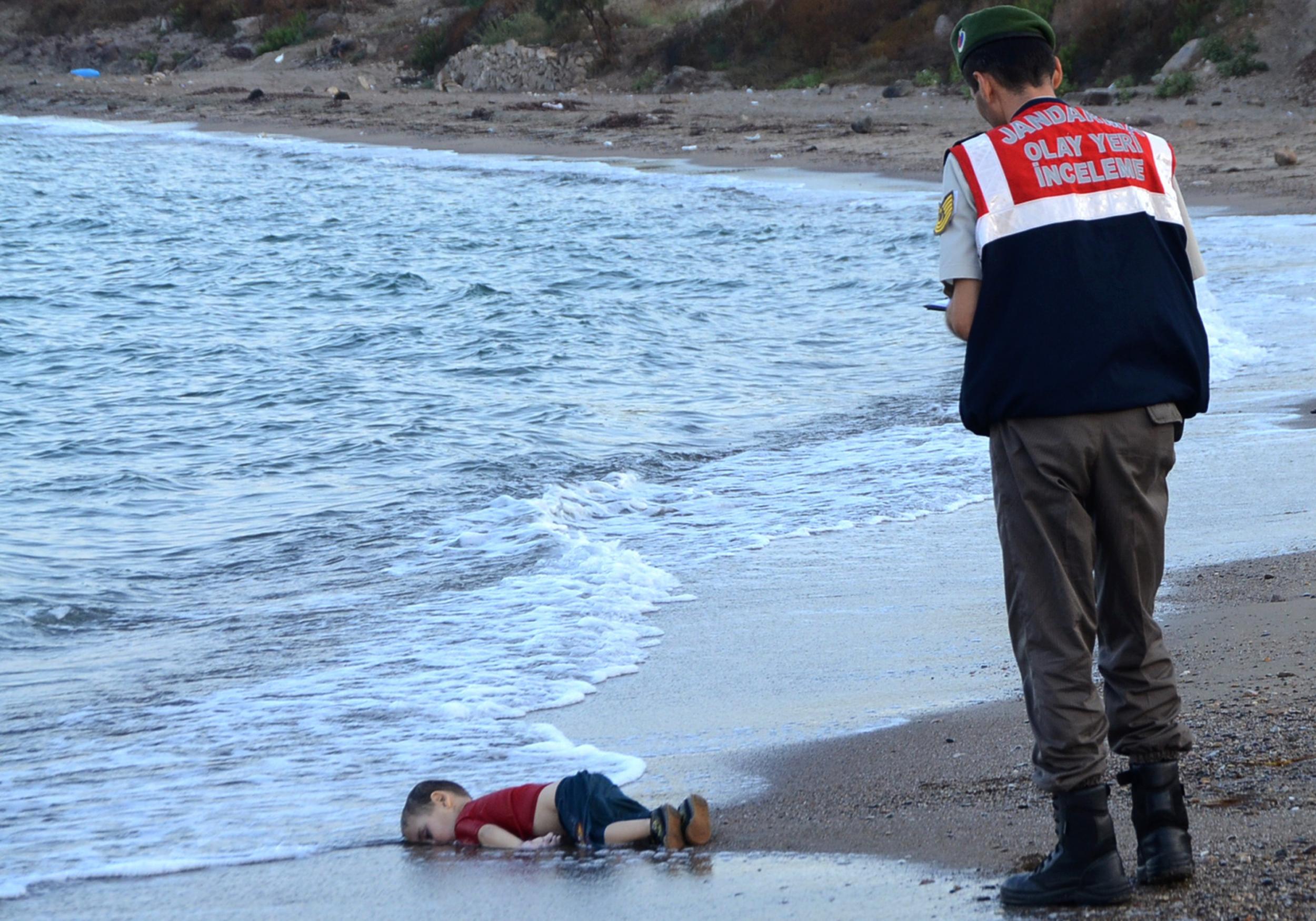Alan Kurdi symbolised an army of dead children. We ignore them at our peril
One year on, has the world learned the lesson of the three-year-old boy washed up on a Turkish beach?


Your support helps us to tell the story
From reproductive rights to climate change to Big Tech, The Independent is on the ground when the story is developing. Whether it's investigating the financials of Elon Musk's pro-Trump PAC or producing our latest documentary, 'The A Word', which shines a light on the American women fighting for reproductive rights, we know how important it is to parse out the facts from the messaging.
At such a critical moment in US history, we need reporters on the ground. Your donation allows us to keep sending journalists to speak to both sides of the story.
The Independent is trusted by Americans across the entire political spectrum. And unlike many other quality news outlets, we choose not to lock Americans out of our reporting and analysis with paywalls. We believe quality journalism should be available to everyone, paid for by those who can afford it.
Your support makes all the difference.The body of Aylan Kurdi has gone beyond the ‘iconic’. Being small and dressed like a little European boy, and being white rather than brown-skinned, his very name posthumously and subtly shifting to the homely English ‘Alan’, the son of the Kurdish refugee family fleeing across the Mediterranean from Turkey to Europe became ‘our’ child. The moment his tiny body washed up on the beach near Bodrum and appeared on front pages around the world, the closet racism of our politicians was briefly stilled. What stone heart could condemn this little boy as part of a ‘swarm’, a word used about the occupants of the Calais camp by a former British prime minister?
But the image of Alan Kurdi obscured a host of lessons which we ignored – and continue to disregard – at our peril. Firstly, of course, he was a mere representative of the thousands of other Alans whose remains lie today on the sea bed of the Mediterranean, forever unrecorded and unfilmed. Alan was a symbol, perhaps even a representative of this army of dead children. But he also became a sacrificial three-year-old, thrown up by the waves as a ‘martyr’ rather than a victim of political violence and betrayal, while the Turkish police officer in rubber gloves gently taking his body from the sand became a kind of male version of the ‘pieta’. But if grief was depicted thus by Michaelangelo half a millennium ago, it was nonetheless odd that we regarded the Syrian Kurdish child as the victim of a frightening new phenomenon.
The refugee, the fearful emigrant – soon to become, for us, the threatening immigrant – was portrayed as a uniquely 21st, or at least 20th century burden. We could look back to the millions of ‘displaced persons’ of post-war 1945 Europe, even to the Armenian refugee survivors of the 1915 genocide or the victims of the Bolshevik revolution, but there history dribbled away. Being a college classicist – in Latin, not Greek – I was struck this week, after the Italians rescued those 10,000 migrants from the sea, by how very central the story of Alan Kurdi’s family and a million others really is in the history and culture of the Mediterranean.
We can read, for example, the epic story of a refugee family launching its equally unstable boat into the Mediterranean only a few hundred miles from the very same Anatolian coast from which the Kurdi family set sail so tragically last year. A son records how he and his father “took to the open sea, borne outward into exile with my people” leaving behind only corpses and a burned landscape. And, having left what is now Turkey, they arrived at last, after a final treacherous crossing of the Mediterranean from what is now Tunisia – how the parallels shout at us across the ages – in the sanctuary of Italy.
Only in this ancient text, the refugee is no ‘migrant’ to burden the EU’s social services – and conscience – but the first hero of Rome, son of Anchises and relative of King Priam, ancestor of Romulus and Remus. Virgil’s ‘Aeneid’ – and I was quoting from Robert Fitzgerald’s glorious translation – does not refer to Aeneas as a migrant. He is in the original Latin an ‘exsul’ – an exile, a banished person – or ‘fato profugus’, a ‘fugitive by destiny’ or by ‘fate’. Today, we might call Aeneas and his father ‘self-exiles’. The Latin for refugee would have been ‘fugitivus’, but this would have implied a criminal on the run from justice – which may be how Donald Trump regards Mexicans, but scarcely applies to Trojans or Syrian Kurds.

What both also have in common is the war which drove them from Anatolian shores. For burning Troy, read burning Aleppo. For the destruction of the ancient city of King Priam, think of the pulverisation of the Great Mosque and the soukhs of Syria’s largest city, and the slaughter of its peoples. Fire and the sword, shell and the barrel bombs. The Trojans and the peoples of the Middle East today were and are fleeing for their lives. And so we come to the flip side of this tragedy. Not the history of the past, but the history of the future. In the age of the internet, we have stopped thinking about this. The question is rarely ‘how did this come to pass?’ but ‘what should we do NOW?’ Don’t ask why 19 men who claimed they were Muslims committed the international crimes against humanity of 9/11. Invade Afghanistan! Don’t question how Saddam achieved power in Iraq. Invade Iraq!
Whether or not the Trojan wars were a Greek (and later Roman) myth or the husk of a real 12th century BC conflict, the story – whether it be of Homer’s Odysseus or Virgil’s Aenias – is as contemporary as the present Arab tragedy in the Middle East. Muslims and Christians leave their mosques and churches behind. Along with his father and friends, Aeneas could take with him only his household gods, his ‘penates’. All were fleeing the folly of kings and warlords, militia leaders and dictators. Which brings us to the next, even vaster fleets of refugees who will trek from their homelands in the decades to come, victims of the ferocious Saddam-like autocrats and satraps whom we currently support in a different part of the Muslim world. I’m talking here of the little emperors – complete with praetorian guards, statues and president-for-life status – in the ‘Stans’ that lie between Afghanistan, Pakistan, Russia and Iran.
Daniel McLaughlin, among the best correspondents in central and eastern Europe, has drawn attention to the dangers inherent in the Muslim Asian states which emerged from the ruins of the Soviet Union a quarter of a century ago. In a region of oil and gas wealth and strategic importance, their leaders, courted by both Moscow and Washington, are guilty of appalling human rights crimes, massacres and torture of their own people in their war – you guessed it – against Isis and the Taliban.
For just as the brutality and corruption of the Arab dictators whom we largely armed and financed, spawned the Islamic cult ‘caliphates’ of the Middle East – the Trojan Horse of our own time – so Islam Karimov, Nursultan Nazarbayev, Imomali Rakhmon and the rest are all fighting the same nebulous black and purist enemy in the ‘Stans’. In Uzbekistan, the brutal Karimov, whose cops specialise in torture – boiling victims alive is a favourite which out Saddam’s Saddam – has suffered a stroke. Some say he is dead, which will be good news for the Islamic Movement of Uzbekistan, ally of both Isis and the Taliban.
In Tajikistan, where a civil war in the 1990s claimed – with statistics as wild as Syria’s – up to 100,000 dead, a thousand of Rakhmon’s citizens have joined Isis, along with Gulmurud Khalimov, the former Tajik police commander. Khalimov, I should add, was trained in the US. The Americans maintained post-9/11 air bases in Uzbekistan and Kyrgyzstan. The ghastly Nazarbayev of Kazakhstan, a creature whose torture chambers and abuse of civil rights are close to Karimov’s standards, pays millions to his hard-working adviser and would be scourge of dictators, Tony Blair. You get the point.
And when these vicious Ruritanias explode, the refugees will come again, the ‘exiles by fate’ and the ‘fugitives of destiny’; Uzbekistan’s 30 million population is almost a third larger than Syria’s. And they will drift across their frontiers and many will come to us, mixed up with more Afghans, Syrians and Arabs. And then we will ask not ‘why?’, not ‘how did we come to this?’, but ‘what do we do NOW?’. And it will be too late again. What was the name of that little chap on the beach, we’ll ask ourselves then? Aylan, wasn’t it? Or Alan? And behind those refugees will be the burning cities of the ancient Silk Road, as surely as Aleppo burns today, and Troy long ago.
Join our commenting forum
Join thought-provoking conversations, follow other Independent readers and see their replies
Comments